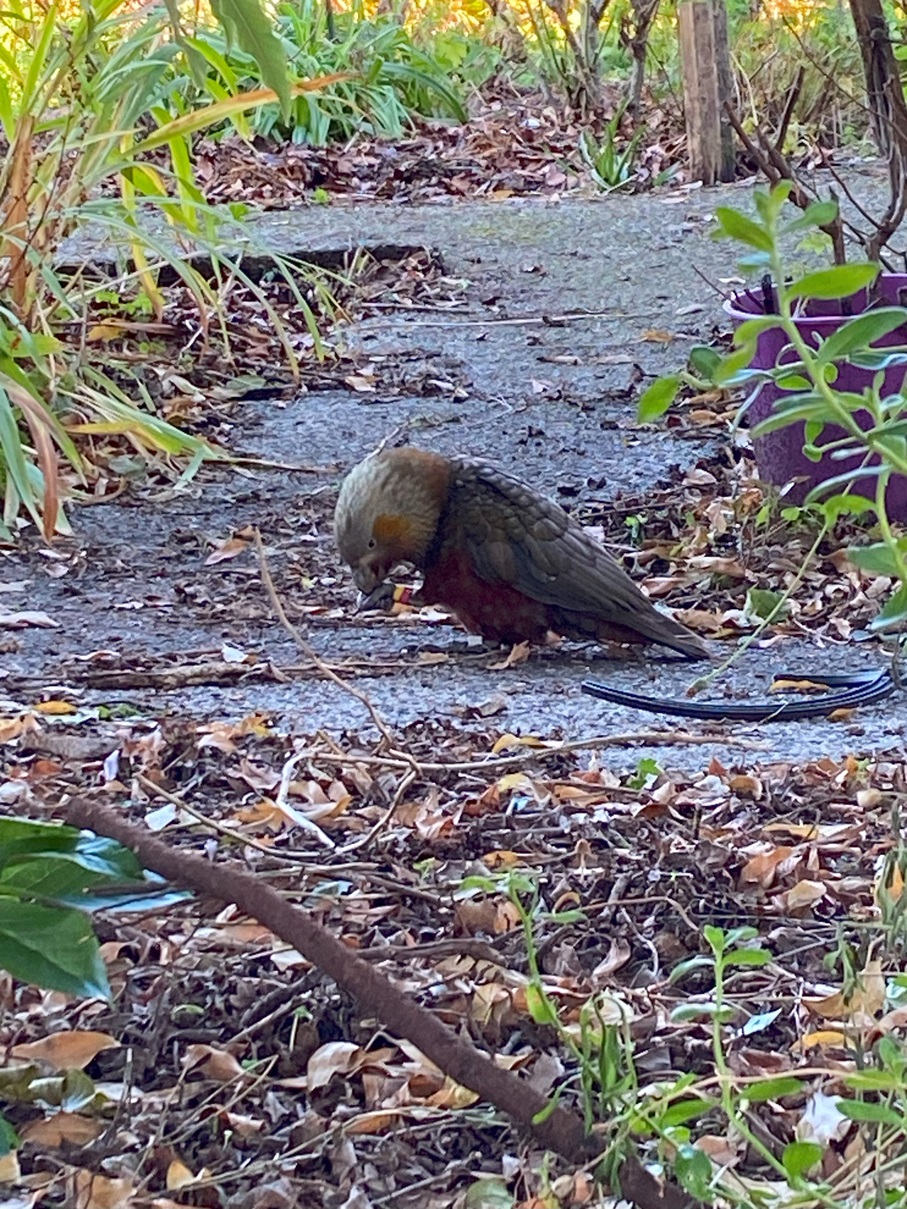
The kākā’s narrow escape from a stalking cat in the Maitland St garden of Rachel and Russell Elder, sparked concern from Orokonui Ecosanctuary general manager Amanda Symon late last month (Otago Daily Times, June 20).
As kākā numbers reach saturation point within the ecosanctuary, they are spreading outside the predator-proof fence, and have been see in Dunedin, Mosgiel, Warrington, and Waitati.
Mrs Elder believes the kākā in her half-acre garden must have made its way there from the ecosanctuary via the town belt and had settled in due to the native bush, and the presence of feijoa and banana passionfruit.
"The kākā just loves them and has also been feasting on nuts and seeds it finds on ground — so it is spending a lot of time fossicking at ground level," she said.
"Seeing the photo of that cat stalking, it scared the living daylights out of me."
While the Elders do not have pets, after their dog Pippa died recently, they are acutely aware that many of their neighbours have cats.
"Many of the other native birds we have in our garden, such as tūī, kererū, and bellbirds, tend to stay up in the trees, but the kākā spends a lot of time on the ground.
"I feel so privileged to have it here, as well as responsible for its safety — I’m very worried about it."

They are also urging Dunedin pet owners to take steps to keep their pets close to home and to consider colourful "scrunchy" collars for cats to warn birds.
A member of the Dunedin Tracks Network Trust, Mrs Elder said Dunedin’s commitment to habitat restoration and predator eradication was "seeing our wonderful bird species being revived".
Projects such as Predator Free Dunedin, the Halo Project and the Otago Peninsula Biodiversity Group were eradicating pests and enabling native bird populations to grow.
"The city itself could be a sanctuary for native birds, as they move along the corridor of the town belt and come into town," she said.
"We could be the city where we can step out of our doors and into nature.
"This is very exciting, but also a big responsibility as now these birds are in our back yards and are exposed to predators."
Mrs Elder said even well-fed cats could hunt native wildlife, and there were things responsible owners could do to reduce their impact on birds and lizards.
These included containing cats inside or in enclosed areas, keeping cats indoors at night, anti-predator collars and avoiding feeding birds in backyards where cats were residents.














